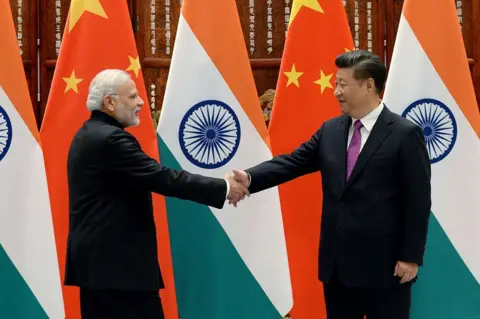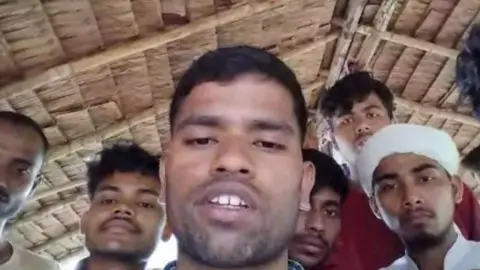The Indian government has launched a strong opposition against Sotheby's in Hong Kong regarding an auction scheduled for Wednesday, involving jewels believed to be linked to the remains of Buddha. These jewels, unearthed alongside bone fragments over a century ago, have spurred the ministry of culture to threaten legal proceedings unless the auction is halted and the items returned to India, as the gems are deemed sacred.
According to the ministry, the sale contravenes both Indian and international laws, as well as United Nations conventions aimed at protecting cultural heritage. Numerous Buddhists and art scholars worldwide have also criticized the auction, reinforcing the urgency of India's request. The ministry published a letter sent to Sotheby's, alongside Chris Peppé, the great-grandson of William Claxton Peppé who excavated the relics in 1898. While Sotheby's acknowledged receipt of the legal notice, they assured that the matter is being taken seriously.
William Claxton Peppé, an English estate manager, discovered these relics in a stupa located near Lumbini, considered the birthplace of Buddha. His findings included 1,800 gems, such as rubies and sapphires, as well as inscribed relics, all of which were placed within a brick chamber in what is now the northern Indian state of Uttar Pradesh. Following the excavation, Peppé transferred the relics to the colonial Indian government, with most eventually housed at the Indian Museum in Kolkata.
The Indian ministry asserts that the auctioned items should not be categorized as "duplicates," as Peppé claimed, but rather as integral parts of India’s inalienable religious and cultural legacy. According to a recent ministry statement, the items, which are culturally and spiritually significant, must not be treated as mere artifacts, highlighting the custodial responsibility that should accompany such relics.
The ministry also demands transparency regarding the relics’ ownership history and has threatened legal action if Sotheby's and Peppé do not comply. Chris Peppé, defending the family's decision to auction, has indicated that previous attempts to donate the items proved challenging, considering an auction as the most equitable solution. He noted that the gems have been showcased in notable exhibitions, which the Peppé family publicizes via their dedicated website.
In the wake of the controversy, the Indian ministry has warned of potential public campaigns to underscore Sotheby's role in reinforcing colonial legacies, should their demands go unanswered. As this situation unfolds, the auction continues to evoke strong sentiments around cultural ownership and the rightful stewardship of sacred artifacts.
According to the ministry, the sale contravenes both Indian and international laws, as well as United Nations conventions aimed at protecting cultural heritage. Numerous Buddhists and art scholars worldwide have also criticized the auction, reinforcing the urgency of India's request. The ministry published a letter sent to Sotheby's, alongside Chris Peppé, the great-grandson of William Claxton Peppé who excavated the relics in 1898. While Sotheby's acknowledged receipt of the legal notice, they assured that the matter is being taken seriously.
William Claxton Peppé, an English estate manager, discovered these relics in a stupa located near Lumbini, considered the birthplace of Buddha. His findings included 1,800 gems, such as rubies and sapphires, as well as inscribed relics, all of which were placed within a brick chamber in what is now the northern Indian state of Uttar Pradesh. Following the excavation, Peppé transferred the relics to the colonial Indian government, with most eventually housed at the Indian Museum in Kolkata.
The Indian ministry asserts that the auctioned items should not be categorized as "duplicates," as Peppé claimed, but rather as integral parts of India’s inalienable religious and cultural legacy. According to a recent ministry statement, the items, which are culturally and spiritually significant, must not be treated as mere artifacts, highlighting the custodial responsibility that should accompany such relics.
The ministry also demands transparency regarding the relics’ ownership history and has threatened legal action if Sotheby's and Peppé do not comply. Chris Peppé, defending the family's decision to auction, has indicated that previous attempts to donate the items proved challenging, considering an auction as the most equitable solution. He noted that the gems have been showcased in notable exhibitions, which the Peppé family publicizes via their dedicated website.
In the wake of the controversy, the Indian ministry has warned of potential public campaigns to underscore Sotheby's role in reinforcing colonial legacies, should their demands go unanswered. As this situation unfolds, the auction continues to evoke strong sentiments around cultural ownership and the rightful stewardship of sacred artifacts.






















